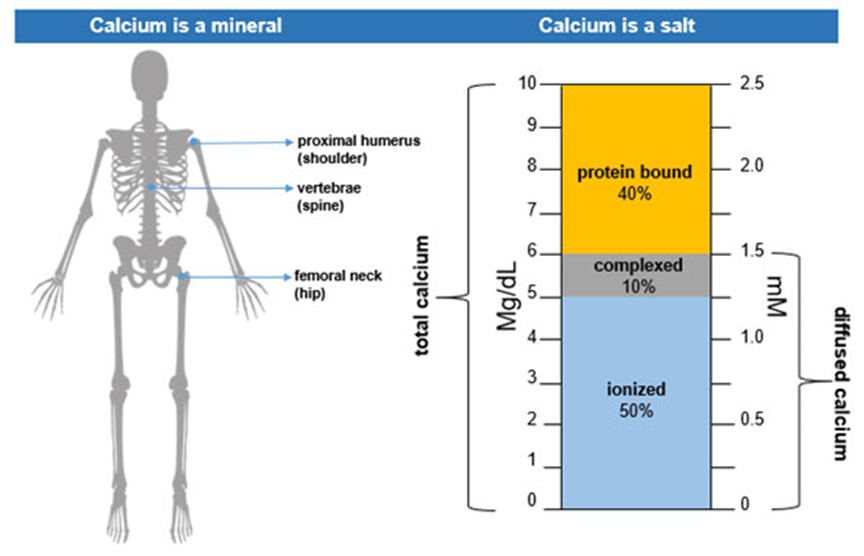A patient has end-stage chronic obstructive pulmonary disease (COPD). Which acid-base imbalance would be predictable in a patient with COPD?
Respiratory acidosis
Respiratory alkalosis
Metabolic alkalosis
Metabolic acidosis
The Correct Answer is A
Choice A reason: This is correct because respiratory acidosis is a condition where the blood pH is lower than the normal range of 7.35 to 7.45, due to impaired gas exchange or hypoventilation, which causes carbon dioxide to accumulate in the blood. COPD is a chronic lung disease that obstructs the airways and reduces the oxygen intake and carbon dioxide output. This leads to respiratory acidosis in the patient.
Choice B reason: This is incorrect because respiratory alkalosis is a condition where the blood pH is higher than the normal range of 7.35 to 7.45, due to hyperventilation, which lowers the carbon dioxide in the blood. COPD does not cause hyperventilation, but rather hypoventilation.
Choice C reason: This is incorrect because metabolic alkalosis is a condition where the blood pH is higher than the normal range of 7.35 to 7.45, due to a loss of acids or an excess of bases in the body. COPD does not affect the metabolic system directly, but rather the respiratory system.
Choice D reason: This is incorrect because metabolic acidosis is a condition where the blood pH is lower than the normal range of 7.35 to 7.45, due to an excess of acids or a loss of bases in the body. COPD does not affect the metabolic system directly, but rather the respiratory system.
Nursing Test Bank
Naxlex Comprehensive Predictor Exams
Related Questions
Correct Answer is C
Explanation
Choice A reason: This is a low value for serum calcium, which indicates hypocalcemia. Hypocalcemia can cause muscle spasms, tetany, seizures, and cardiac arrhythmias.
Choice B reason: This is also a low value for serum calcium, which indicates hypocalcemia. Hypocalcemia can cause muscle spasms, tetany, seizures, and cardiac arrhythmias.
Choice C reason: This is the normal range of serum calcium in adults. Calcium is essential for bone health, muscle contraction, nerve transmission, and blood clotting.
Choice D reason: This is a high value for serum calcium, which indicates hypercalcemia. Hypercalcemia can cause nausea, vomiting, constipation, confusion, lethargy, and kidney stones.

Correct Answer is A
Explanation
Choice A reason: This is correct because metabolic alkalosis is characterized by a high pH and a high HCO3-. The client's pH and HCO3- are both high, indicating a metabolic disorder. The condition is uncompensated because the PaCO2 is normal, meaning the respiratory system is not compensating for the metabolic alkalosis.
Choice B reason: This is incorrect because metabolic acidosis is characterized by a low pH and a low HCO3-. The client's pH and HCO3- are both high, indicating alkalosis, not acidosis.
Choice C reason: This is incorrect because respiratory alkalosis is characterized by a high pH and a low PaCO2. The client's pH is high, but PaCO2 is normal, indicating a metabolic problem, not a respiratory one.
Choice D reason: This is incorrect because respiratory acidosis is characterized by a low pH and a high PaCO2. The client's pH is high, and PaCO2 is normal, indicating a metabolic problem, not a respiratory one.
Whether you are a student looking to ace your exams or a practicing nurse seeking to enhance your expertise , our nursing education contents will empower you with the confidence and competence to make a difference in the lives of patients and become a respected leader in the healthcare field.
Visit Naxlex, invest in your future and unlock endless possibilities with our unparalleled nursing education contents today
Report Wrong Answer on the Current Question
Do you disagree with the answer? If yes, what is your expected answer? Explain.
Kindly be descriptive with the issue you are facing.
